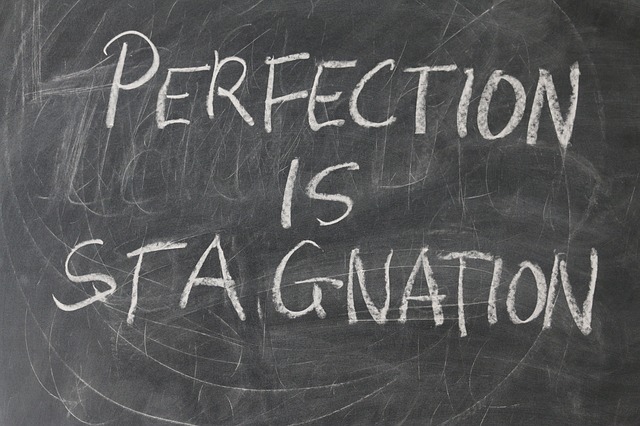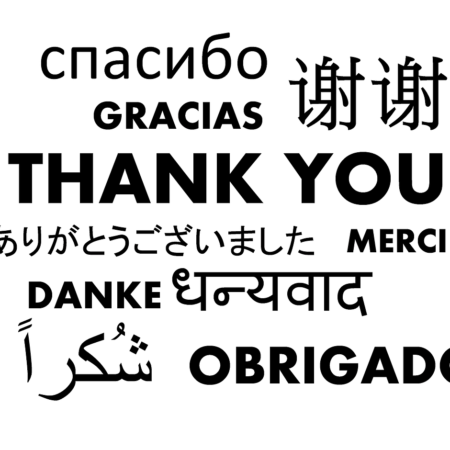
Why Perfectionism is Ruining Your Success?
Meet Alice. Alice is a gifted fiction writer. She has two published books that were well received by readers. She hasn’t written a thing since her second novel two years ago – but not for lack of trying. Her friends see it as a case of garden-variety writer’s block, a temporary affliction of those who make a living wordsmithing. What many don’t know about Alice is that at the core of her lack of productivity isn’t a temporary pit stop on the authorship highway while she mentally refuels for her next book … it’s perfectionism.
Nothing is good enough for Alice. She polishes and polishes and is still unsatisfied. She berates herself for not being good enough. She procrastinates just to avoid the pain. She has sleep problems. And she hasn’t been in a relationship for several years because she doesn’t want to take the time to date and quickly turns down men who are not up to her high standards.
Most people get it all wrong about perfectionism. They think perfectionists are people who enjoy focusing on their work … that they’re high achievers because they don’t want to settle for producing sub-par results. Perfectionism is a personality disorder highly related with fear. Fear of failure, lack of self-confidence, constant self-evaluation and a host of other negative beliefs and habits hold perfectionists back from achieving their goals, not advance them.
Brené Brown, researcher and author of The Gifts of Imperfection: Let Go of Who You Think You’re Supposed to Be and Embrace Who You Are calls perfectionism a “20-ton shield” that we carry around to protect ourselves from getting hurt. “Perfectionism is not about striving for excellence or healthy striving. It’s a way of thinking and feeling that says this: ‘If I look perfect, do it perfect, work perfect and live perfect, I can avoid or minimize shame, blame, and judgment.’”
Perfectionists Don’t Do Well In Business
Perfectionism limits one’s chances to compete in today’s global marketplace. Companies require good relationships from within their organization. Perfectionism can harm your career. If you can’t get along with the people you work with, you’re not going to be the one to be promoted. Corporate execs want team players and people they’re comfortable with. When you’re so overwhelmed by work and anxiety, you can’t get anything done, and you become trapped in a loop of unhealthy thoughts, impulses, and behaviors.
For entrepreneurs, perfectionism can keep you from launching and succeeding at your business startup because you’re more afraid to take risks and it dampens your creativity and innovation, which are absolute necessities for those who want to strike out their own and make their mark.
Let’s do a little fact check. Ask yourself if you relate to any of some of the downsides to perfectionism that can destroy your career and prevent you from making important connections in the workplace:
- Difficulty working as a team player
- Fear of delegating
- Micro-managing
- Procrastination and inertia
- Lashing out at others when things go wrong
- Affects time-management skills
That’s not to say perfectionists can’t make it big. They just struggle more. Two famous ones are Lady Gaga, and the late Michael Jackson. Lady Gaga throws up before every performance, concerned that each part of her show must be perfect. Jackson, never pleased with his work, revealed on several occasions that his extreme perfectionism contributed to depression.
Perfectionism Can Be Hazardous to Your Health
If you’re a hard-core perfectionist, you’re 51 percent more likely to die at a younger age. How could that be?
Perfectionists worry, stress out, have trouble sleeping, neglect their health. These make them very unhappy and unproductive. Their levels of stress hormones like cortisol rise. Elevated cortisol can cause headaches, compulsive eating, IBS and serious conditions like heart disease and memory impairment.
Perfectionists Sabotage Relationships
For one thing, perfectionists are often too immersed in their work and stressing over their work to maintain a relationship, let alone date. If they have a family, they’re not going to be the partner who spends quality time with their spouse and kids. They can be hard to live with. Perfectionists can make their families miserable if they try to impose their own impossible standards of perfection on them.
How to fight perfectionism
Perfectionism isn’t a death sentence. Experts say perfectionists are made, not born. You may have spent a good part of your life as a success slave but you can learn to break out of those debilitating habits. Seek the help of a coach and try some self-help techniques. Here are a few to get started:
- Recognize that perfectionism impedes your success
- Make mistakes on purpose every now and then
- Treat everything like a rough draft; you’ll be less critical of mistakes
- Be more optimistic; avoid thinking all or nothing
- Be open to change
- Trust others more
- Set priorities; Use the 80/20 rule (Pareto Principle): Ask yourself: “Is it important enough to spend 80% of my time on 20% of the work?”
- Stop yourself from engaging in excessive behaviors designed to prevent imperfection.
Do you constantly judge yourself and your work? Do you beat yourself up for not being good enough? Is your productivity suffering because you don’t know when to quit? You could be a perfectionist and not even know it. The good news is you can fix it. Perfectionism is a “learned habit”, you can “unlearned it” if you work at it. The really talented people know that there is no transformation in life where there is no challenge. And remember, done is better than perfect.









